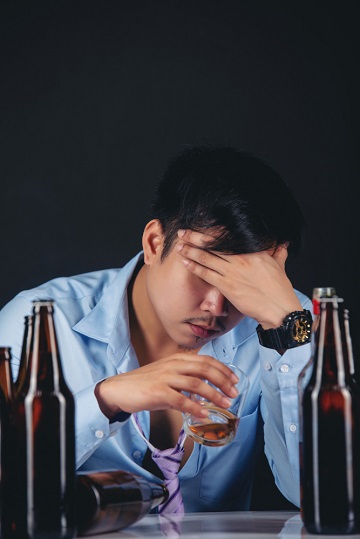 “I have to go out by myself.” “I can with this.” “I leave it whenever I want.” These are phrases we hear frequently. But time passes, and they continue to use drugs. Because you need a safe, planned and judicious detoxification program, in certain cases, the addiction detoxification phase can be performed on an outpatient basis. However, on many occasions, hospital admission is necessary.
“I have to go out by myself.” “I can with this.” “I leave it whenever I want.” These are phrases we hear frequently. But time passes, and they continue to use drugs. Because you need a safe, planned and judicious detoxification program, in certain cases, the addiction detoxification phase can be performed on an outpatient basis. However, on many occasions, hospital admission is necessary.
What Is Substance Abuse Intervention?
For the World Health Organization (WHO), addiction is a brain disease like other recognized neurological or psychiatric disorders, such as Alzheimer’s or schizophrenia. In addition, it equates to other chronic diseases such as diabetes or arterial hypertension. So, isn’t it a vice? Isn’t it a depravity? Isn’t it a problem of a moral nature? Well no.
Specifically, addiction is a disease in which the ability to control the impulse to consume alcohol or other drugs is lost. People who are addicted are unable to stop consuming these substances, not even when they already face a serious health problem or the harmful repercussions at a psychological, family, social or work level that dependency entails. The more time passes, the more difficult it is to treat. Therefore, the sooner we try to remedy the better results we will obtain. Many people with this disease deny being addicted, often minimizing their problem by claiming they can quit whenever they want or that their friends are also using.
It takes time for someone to become addicted. The drug directly affects the brain and damages it causing us to respond this way to its effect. One of the great difficulties when proposing a detoxification process is the perverse mechanism of addiction, not only psychological but also physical, generated by these substances.
We call “craving” the intense desire, the craving, to consume drugs. These powerful desires are part of the human condition because our brains are wired to appreciate and pursue natural rewards like food or sex. The drugs consumed by addicted people activate the same neural circuits that motivate pleasurable behaviours. Cravings for alcohol or other drugs can be even stronger than those for food or sex. And so, on a day-to-day basis, we frequently observe, for example, a careless diet secondary to alcohol abuse.
There comes a time when more doses of the drug are needed to achieve the same effect (tolerance), and when you stop using it, and the body lacks it, it responds with a withdrawal syndrome. Many times the person drinks or takes the drug already in the morning to avoid the appearance of withdrawal symptoms, mainly malaise and tremors. When the withdrawal syndrome appears, it must be treated appropriately because apart from the fact that the person has a very bad time, sometimes symptoms of sufficient severity may appear to require medical attention on their own.
 Physical Symptoms
Physical Symptoms
The physical symptoms of the withdrawal syndrome may vary according to the substance consumed and its severity. Seizures and the presence of delirium tremens can complicate it. This toxic-metabolic disorder could be considered the maximum degree of withdrawal syndrome and is a vital emergency since it is life-threatening. It usually begins with anxiety, insomnia, tremors, and dilated pupils. Feeding may not be tolerated, causing nausea, vomiting or diarrhoea. Subsequently, a clouding of consciousness appears, with a confusional state and disorientation, hallucinations, delusions, psychomotor agitation, inversion of the sleep-wake cycle, profuse sweating and generalized tremors.
There is scientific unanimity that drug use damages neural connections and brain functioning. Alcohol consumption can lead to severe neurological disorders such as Wernicke’s encephalopathy and Korsakoff’s syndrome. The first, fortunately, has pharmacological treatment in the initial phases, and the second no longer.…

 In this first step, many addicted people must enter the centre. It is about eliminating alcohol or other drugs from the body and achieving physical stability without the body missing the substance. It should always be carried out under the watchful eye of the doctor and psychiatrist since intense discomfort can appear and become dangerous. This way, the detoxification will be carried out safely, and the possible physical withdrawal symptoms will be managed. Doctors will prescribe drugs to avoid withdrawal effects and make this process safer and easier. Sometimes, fluid therapy will be required, given the intolerance to food and the severity of the condition. Intervention Specialisttreatment tries to avoid the appearance of complications. For it,
In this first step, many addicted people must enter the centre. It is about eliminating alcohol or other drugs from the body and achieving physical stability without the body missing the substance. It should always be carried out under the watchful eye of the doctor and psychiatrist since intense discomfort can appear and become dangerous. This way, the detoxification will be carried out safely, and the possible physical withdrawal symptoms will be managed. Doctors will prescribe drugs to avoid withdrawal effects and make this process safer and easier. Sometimes, fluid therapy will be required, given the intolerance to food and the severity of the condition. Intervention Specialisttreatment tries to avoid the appearance of complications. For it,